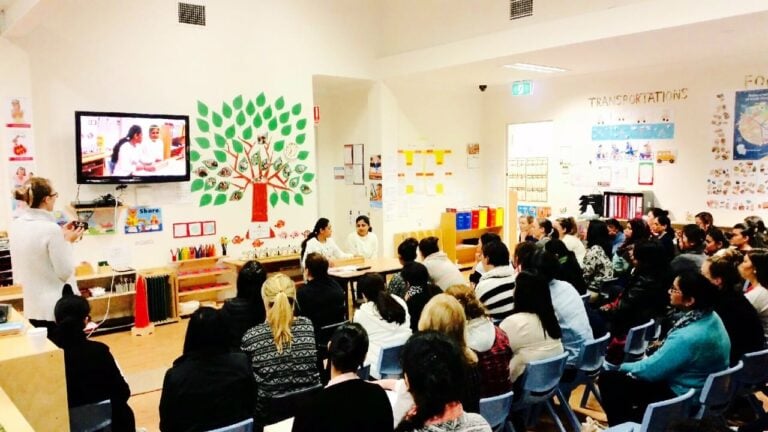On Wednesday 20th May Montessori Academy hosted a Montessori training session focused on Sensorial Education at the North Parramatta campus.
Grace and Courtesy lessons are an important part of Montessori Academy's Practical Life Curriculum. In fact, the skills children learn as part of the Grace and Courtesy lesson program are just as important as Maths, Music and Language. This is because lessons on Grace and Courtesy provide children with explicit instructions on how to interpret and react to different social situations and behaviours.


